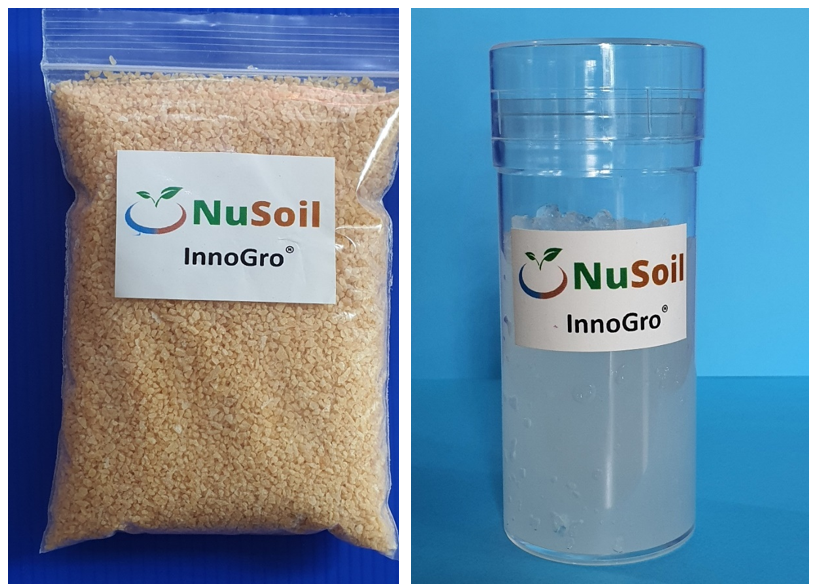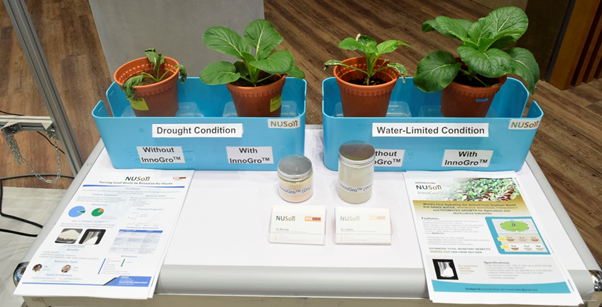Water scarcity and food waste. These are two of the leading challenges for sustainable development.
Agriculture is the largest water user globally, and climate change significantly impacts agriculture by increasing water demand and reducing crop productivity. At the same time, okara, the white, mushy and unpleasant-smelling residue that remains after making tofu and soya milk, is a major source of food waste.
Enter NuSoil, which does double duty in addressing both these pressing issues by repurposing soya waste into a new product to cultivate healthier and more resilient crops.

InnoGroTM is the world’s first hydrating gel made from soybean waste. The gel swells as it absorbs and retains water, like in the photo on the right.
NuSoil, which was co-founded by Life Sciences alumna Dr TAN Wee Kee (1999) in 2019, created an okara-derived hydrogel which serves as a soil supplement that promotes plant growth even under drought conditions.
Its patented superabsorbent hydrogel – InnoGroTM – is made from okara, and acts as a mini-reservoir which allows plants to tap on water and fertiliser reserves in the soil for longer periods of time. InnoGroTM minimises nutrient leakage and biodegrades in a controlled manner, enabling the gradual release of water and nutrients.
“Hydrogels are not new,” says Dr Tan. “However, while most are petroleum-based, ours is developed from plant waste, making it a bio-based and sustainable product.”

NuSoil’s founders have performed rigorous testing in various conditions to optimise plant growth and plants thrive with the use of InnoGroTM.
NuSoil was one of the Top 100 Global Startups in international competition SLINGSHOT (2019) and has successfully raised seed funding.
Dr Tan’s team is currently focused on scaling up manufacturing capabilities and commercialising InnoGro. At the same time, she is exploring other products for sustainable food production.
An agronomist and avid plant lover, Dr Tan has vast experience in plant research. She previously worked on aquaporins (membrane channels in organisms) for water treatment and more recently, turned her attention to the use of soy waste for agriculture.
Find out more about Dr Tan’s journey from research to enterprise here.